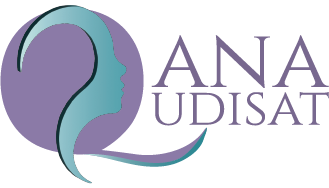Motherhood and Parenting well-being
HOME /Motherhood and Parenting well-being
The Importance of Motherhood and Parenting Well-Being: Becoming Unconsciously Mentally Well Parents, Especially Mothers
Motherhood is a profound journey that shapes not only the child but the mother herself. As parents, we often focus on nurturing our children, ensuring they are healthy, happy, and well-adjusted. But to truly fulfill this role, it is vital for parents-especially mothers-to cultivate their own mental and emotional well-being. Parenting from a place of unconscious mental wellness is key to raising emotionally resilient, mentally healthy children.
Why Unconsciously Mental Well Parenting Matters
⦁ Emotional Stability for the Child:
A mother’s mental and emotional state deeply impacts her child’s development. By being unconsciously mentally well, mothers create a stable, nurturing environment where children feel secure, loved, and understood.
⦁ Modeling Resilience:
Children learn through observation. When a mother is mentally well, she models healthy emotional regulation, problem-solving, and resilience, helping her children develop these crucial life skills.
⦁ Reducing Generational Trauma:
Parenting from a place of unconscious mental wellness means breaking cycles of generational trauma. By addressing her own emotional wounds and limiting beliefs, a mother can stop these patterns from being passed down to her children.
⦁ Balancing Self-Care and Parenting:
When a mother prioritizes her well-being, she learns to balance the demands of motherhood with self-care, ensuring she is emotionally available for her children without sacrificing her own mental health.
Lactation and Postpartum Well-Being: Navigating the Hormonal Shifts
The postpartum period and lactation journey are times of immense physical, emotional, and hormonal changes for a mother. Understanding these shifts is key to maintaining well-being and thriving as both a parent and an individual.
Hormonal Changes in Postpartum and Lactation
⦁ Postpartum Hormonal Shifts:
After giving birth, a mother’s body experiences a significant hormonal transition. The drop in estrogen and progesterone levels, along with fluctuating oxytocin and prolactin, can lead to emotional vulnerability, mood swings, and the well-known “baby blues.” When unaddressed, this can develop into postpartum depression or anxiety.
⦁ Oxytocin: The Love Hormone
During breastfeeding, oxytocin plays a crucial role. Known as the “love hormone,” it stimulates the bonding experience between mother and baby. However, it also triggers emotional sensitivity. Understanding how oxytocin works helps mothers tap into the positive emotions it fosters while managing the emotional intensity.
⦁ Prolactin and Emotional Well-Being
Prolactin, the hormone responsible for milk production, also impacts a mother’s mood. It promotes feelings of calm and relaxation, but the ongoing demands of lactation combined with sleep deprivation can create emotional strain. It’s essential to balance these hormonal influences with support and self-care.
Supporting Postpartum and Lactation Well-Being
By focusing on being unconsciously mentally well, mothers can navigate the complexities of parenting with clarity and confidence.
Motherhood and parenting are beautiful, transformative experiences, but they are also filled with challenges. By focusing on your unconscious mental well-being-especially during the postpartum and lactation periods-you can navigate these challenges with grace and ensure that you are emotionally, mentally, and physically present for both yourself and your child. At Masar©, we help guide mothers through this journey, offering support and empowerment to become the best versions of themselves.




